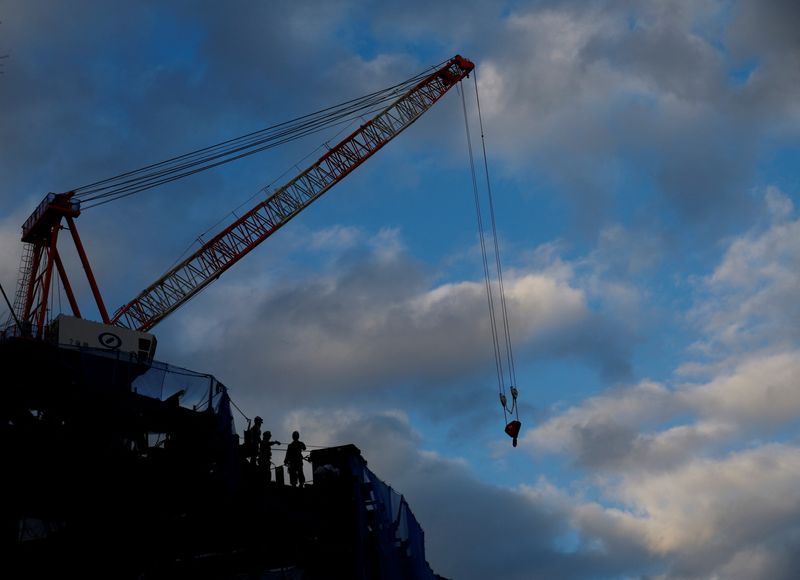
©Reuters. Workers are seen at a construction site in a business district in Tokyo, Japan, January 23, 2024. REUTERS/Kim Kyung-Hoon/File Photo
TOKYO (Reuters) – Japan’s core machinery orders rose slightly more than expected in December but remained down year-on-year, government data showed on Monday, although further increases are expected to be held back by factors unfavorable globally and domestically.
Core orders, a series of highly volatile data considered a leading indicator of capital spending over the next six to nine months, rose 2.7% in December from the previous month, Cabinet Office data showed.
That compared with the median forecast of a 2.5% increase by economists in a Reuters poll.
On a year-over-year basis, core orders, which exclude volatile shipping and electric utility data, fell 0.7%, lower than the expected decline of 1.4%.
By sector, manufacturer orders increased 10.1% in December compared to the previous month, thanks also to the chemical industry and information and communications machinery. This followed a 7.8% decline in November.
Service sector orders fell 2.2% after falling 0.4% in the previous month, weighed down by a decline in orders from the postal and transportation sectors, as well as telecommunications.
For the January-March period, core machinery orders are expected to rise 4.6% quarter-on-quarter on increased demand for motors and electronic and telecoms equipment in unspecified sectors, a Cabinet Office official said .
However, the government maintained its view that machinery orders had “stalled” for 14 consecutive months, indicating a 1.0% decline in core machinery orders for the October-December period.
While the overall appetite for capital investment is still strong, there are signs of weakening in the non-manufacturing sector as moves to normalize economic activity run their course, said Masato Koike, economist at Sompo Institute Plus.
“The pace of recovery will be limited given the limited recovery in domestic demand and the lack of momentum in the foreign economy,” Koike said.